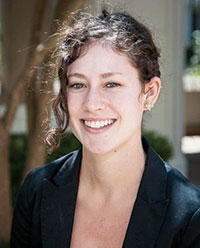
Colleen Morrissey is a Resource Specialist in the Aging Information Center at SCES. SCES Senior Protective Services Worker Norah Al-Wetaid and Connect Social Worker Lisa Waxman also contributed to this report.
By Colleen Morrissey
If you’re coming home for the holidays and visiting parents or older family members, you might notice changes in their behavior or living conditions. You might observe a decline in housekeeping, for example, or significant weight loss, or maybe a failure to take medications as prescribed.
These could be signs of self-neglect – the failure or refusal of an independent older adult to provide one or more of the necessities essential to their own physical wellbeing. So what to do?
Self-neglect is a fairly common problem, and it’s one that’s best approached tactfully. The social workers and case managers at Somerville-Cambridge Elder Services (SCES) are experienced at navigating these sometimes treacherous waters, and offered the following advice on detecting and addressing self-neglect:
- Notice the signs. Inadequate food, clothing, or shelter; inattention to personal care; mismanagement of finances, including unpaid bills; and behavioral changes such as wandering or unsafe driving may be indicators of self-neglect.
- Discuss it with the person directly. It might be hard to broach the subject, but try to voice your concerns gently, while keeping an open mind to the other person’s point of view. Keep in mind that this kind of feedback can be hard to hear.
- Listen to what they have to say. Be patient, and validate their concerns. Remember, it’s ultimately the older adult’s decision to accept or decline assistance, and that they may be less willing to hear your concerns and suggestions if you don’t listen to them first.
- Call for help. If you’re concerned about an older adult’s safety, contact Protective Services (PS). PS is designed to eliminate or alleviate abuse, neglect, self-neglect and exploitation of older adults. If your concern meets PS guidelines, a social worker will meet with the older adult to figure out what’s going on and how they can help. The social worker’s role is to advocate for the older adult’s rights while trying to make their situation safer.
- Formulate a care plan. There are many kinds of services out there that can help, if the person is open to them. Aging Services Access Points (such as SCES) offer services like help with personal care, cleaning and grocery shopping, often at subsidized rates. Consider starting with less intrusive services first, like home-delivered meals (commonly known as Meals On Wheels) or personal emergency response devices (like Lifeline) and slowly building from there.
Depending on the circumstances, it may also make sense to hire an Aging Life Care Manager to assess the person’s needs. Often a nurse or social worker, Aging Life Care Managers handle conversations with older adults around accepting help. They work at the older adult’s pace and around his or her interests, in order to build trust and to ensure that the older adult’s needs are met on an ongoing basis.
Still have questions about self-neglect or programs that can help? Call the SCES Aging Information Center during business hours at 617-628-2601 to receive free advice and guidance, or submit your questions through the Request Information page at eldercare.org.
It probably bears repeating that tact is crucial here. If an adult is competent to make their own decisions, it is their right to refuse help. Just remember that you are on the same side, and that SCES is here to help, if you have questions.
SCES offers Aging Life Care Manager services through the Community Living Options program. For more information, call 617-756-1026 or click the ‘Private Pay’ tab at eldercare.org. Established in 1972, Somerville-Cambridge Elder Services is a private, non-profit agency dedicated to improving the quality of life and maintaining the dignity and independence of older people in Somerville and Cambridge. For more information about SCES, visit eldercare.org or follow SCES on Facebook and Twitter.












Reader Comments